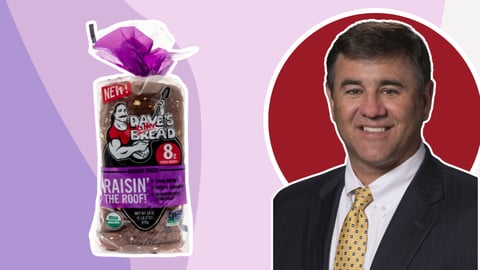Nestlé Tackling Child Labor, Traceability With Cash Incentives to Cocoa Farmers
Nestlé is taking steps to address child labor in cocoa production and increase supply chain traceability with a new program that includes paying farmers cash for such things as enrolling their children in school.
The No. 1 consumer goods company is extending a 2020 pilot with 1,000 farmers in Côte d'Ivoire that enables families to earn around $540 annually for the first two years and around $270 each additional year. In addition to decreasing child labor and increasing cocoa sourcing traceability, the program is meant to advance regenerative agriculture practices and gender equality.
Other eligible practices to receive the cash incentive include growing other crops, raising livestock, and beekeeping — all intended to generate diversified incomes.
[See also: Nestlé Using AI To Convert CO2 Into Green Products & Recycle Wastewater]
All told, the company has committed to investing nearly $1.4 billion by 2030.
This year, 10,000 families in the country will be eligible, and the program will be extended to Ghana in 2024, eventually reaching all cocoa-farming families in the company's global cocoa supply chain by 2030.
The volume of cocoa sold does not affect incentives, which are also offered to the farmers' spouses and delivered via a secure mobile service transfer to ensure traceability from Nestlé suppliers to the recipient.
The money will be distributed during periods of the most need, Nestlé said, such as the back-to-school period and before the rainy season, and they’ll work with such organizations as the International Cocoa Initiative and Rainforest Alliance to monitor participation.
It will also leverage farmer feedback and third-party data collection and evaluation to modify and improve the program during scaling, as well as receive guidance from a multi-stakeholder strategic advisory committee managed by IDH-The Sustainable Trade Initiative.
Nestlé CEO Mark Schneider said the program’s goal is to have a tangible impact on the growing number of cocoa-farming families and to close the living income gap, especially in resource-scarce areas with widespread poverty.
[See also: Inside Nestlé’s Largest R&D Accelerator]
"Building on our longstanding efforts to source cocoa sustainably, we will continue to help children go to school, empower women, improve farming methods, and facilitate financial resources,” said Schneider. “We believe that, together with governments, NGOs and others in the cocoa industry, we can help improve the lives of cocoa-farming families and give children the chance to learn and grow in the safe and healthy environment they deserve."
It will also, Magdi Batato, executive VP and head of operations, pointed out, help build consumer trust in its products and respond to the growing demand for responsibly and sustainably sourced cocoa, and the company intends to launch a range of products with cocoa sourced from the program — starting with KitKats next year.
With that said, Schneider noted in an CNBC op-ed of both the promise and potential hurdles of the program in helping address key economic, social, and infrastructure challenges contributing to the risk of child labor.
"But we also know we cannot offer a simple or guaranteed solution, and our best plans on paper may look different on the ground," he wrote. "Just as important as being bold and innovative is being adaptable and nimble. Critical to the success of this program will be honest and constructive feedback — from the governments of Cote d’Ivoire and Ghana and NGOs that serve on our advisory committee as well as from the farmers and cooperatives who participate."






